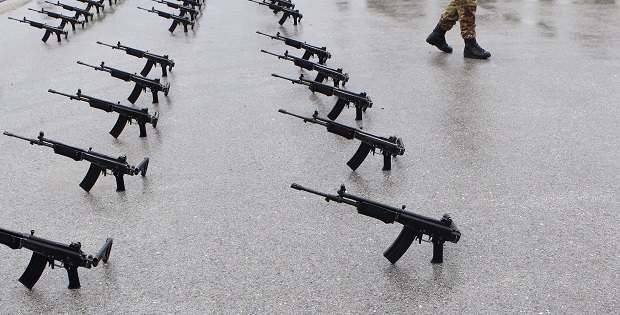AFP: U.S. Senate okays defense bill over White House objections

The U.S. Senate on Thursday passed a $612-billion defense policy bill, over White House objections, that allows lethal weapons for Ukraine, and virtually prevents President Barack Obama from closing the war-on-terror prison at Guantanamo, AFP reported.
The measure passed easily, 71 votes to 25.
But significant battles lie ahead as Obama's Democrats, and the Republicans who control Congress, gear up for debates on spending bills including on defense for fiscal year 2016 which begins October 1.
Democrats have objected to the way the National Defense Authorization Act avoids congressionally-mandated spending caps by pouring extra money into a war-fighting fund that is not subject to the caps.
Top Senate Democrats wrote their Republican counterparts ahead of Thursday's vote, urging the two parties to enter negotiations to end the across-the-board budget caps known as sequestration.
"Members of both parties have long agreed that sequestration is not a smart, effective way to budget for our national defense and our domestic investment priorities," they wrote.
Obama and Democrats argue that any move to lift sequestration on the defense side should be met with similar action on domestic, non-military spending.
"We cannot and we should not fix part of our government and not the other part," Senate Minority Leader Harry Reid said.
Senator John McCain, the Armed Services Committee chairman who is shepherding the bill through the chamber, warned of the "increasingly dangerous world" that the United States faces as it debates funding for its troops and military.
He noted the bill funds "every dollar of Obama's $612 billion request, but focuses these resources more directly on our war fighters."
The measure slashes billions in Pentagon waste and upgrades capacity including for new F-35B Joint Strike Fighters and Virginia-class submarines.
It allots $300 million worth of military aid to Ukraine, including radars and anti-tank weapons.
But it also makes it harder for Obama to make good on his long-term pledge to close Guantanamo, by extending prohibitions on building or upgrading US facilities to house terror detainees, and barring transfer of such Guantanamo detainees to US soil except in medical circumstance.
Политика конфиденциальности | Правила пользования сайтом







